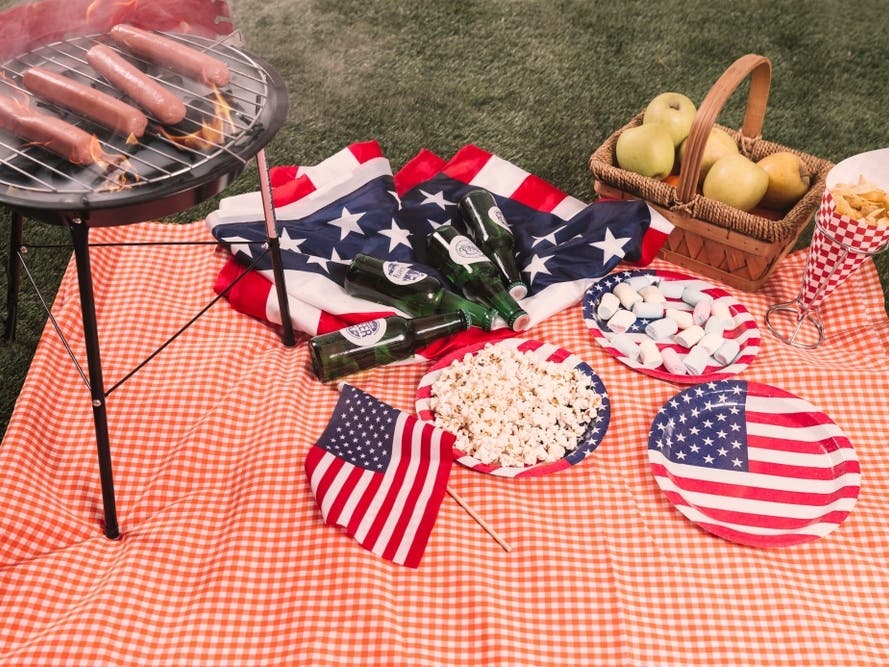Seasonal & Holidays
How Long Can Food Be Left Out At Picnics, Barbecues In NoVA, DC
If you're planning on having a barbecue in NoVA or DC this summer, be sure to know how long food can be safely left out.

VIRGINIA — If you're hosting or going to a picnic or cookout this summer in Northern Virginia or DC, it's important to know how long food can safely be kept out.
The Food and Drug Administration has advice for how long meat can sit out before it goes on the grill, how to care for fresh fruit that could be put out for dessert, and best practices for coolers and other storage.
"Picnic and barbecue season offers lots of opportunities for outdoor fun with family and friends. But these warm weather events also present opportunities for foodborne bacteria to thrive," the FDA says on its website. "As food heats up in summer temperatures, bacteria multiply rapidly."
Find out what's happening in Across Virginiawith free, real-time updates from Patch.
Cooks should refrigerate foods immediately — that's within two hours of purchasing or cooking. If the temperature outside is more than 90 degrees, food should not be left out for more than one hour, the FDA said.
Maintain Food Temperatures
- Cold perishable food should be kept in the cooler at 40 degrees or below until serving time.
- Once you’ve served it, it should not sit out for longer than 2 hours, or 1 hour if the outdoor temperature is above 90 degrees. If it does — discard it.
- Foods like chicken salad and desserts in individual serving dishes can be placed directly on ice, or in a shallow container set in a deep pan filled with ice. Drain off water as ice melts and replace ice frequently.
- Hot food should be kept hot, at or above 140 degrees.
- Wrap it well and place it in an insulated container until serving.
- Just as with cold food — these foods should not sit out for more than 2 hours, or 1 hour in temperatures above 90 degrees. If food is left out longer, throw it away to be safe.
- Place cold food in a cooler with ice or frozen gel packs. Cold food should be stored at 40 degrees or below to prevent bacterial growth. Meat, poultry, and seafood may be packed while still frozen so that they stay colder longer.
Packing and Transporting Food
- Be sure to keep food cold when it's supposed to be cold. That means putting it in a cooler with ice and keeping the temperature below 40 degrees Fahrenheit — that prevents bacterial growth.
- Consider keeping beverages in one cooler and perishable items in another.
- Keep your coolers closed to keep the temperature down.
- Keep all raw meat and seafood wrapped to prevent cross contamination, and don't allow it or the juices from the meat to touch fruits and vegetables that will be eaten raw.
- Clean all of the fruits and vegetables — rinse all of them under running water, rub them or scrub the skins with a brush, and dry with a paper towel.
Safe Grilling Tips
- Marinate all meats in the refrigerator.
- If you "partially cook" anything, cook it fully immediately after.
- Cook all of the food thoroughly and check it with a food thermometer.
- Keep food that is done hot until it's consumed.
- Don't reuse platters or utensils when cooking raw meat or seafood.
- Check your food when it's done to be sure that nothing is in it (for example, a bristle from a barbecue brush you may use).
Safe Food Handling
- Wash your hands and surfaces often, especially between cooking different items or if you leave the kitchen to use the bathroom or if you pet your dog or cat.
- Keep raw meat separate from other food.
- Use a food thermometer to check that you're cooking food to the correct temperature.
For more in-depth tips on how to keep your picnic guests safe, visit the FDA's website.
Find out what's happening in Across Virginiawith free, real-time updates from Patch.
Get more local news delivered straight to your inbox. Sign up for free Patch newsletters and alerts.